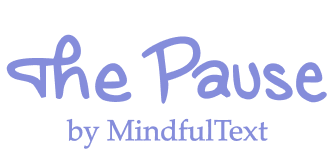
Join 600+ healthcare professionals on a mindful journey. Don’t miss out on insightful stories, practical tips, and easy mindfulness exercises—delivered straight to your inbox each week.

MindfulText sees 80%+ retention after 15 months. Compare that to apps at 10% after 30 days.

Protecting caregiver well‑being is both an ethical obligation and a financial imperative.
Burnout now affects about half of healthcare workers worldwide—and up to two-thirds of physicians and nurses—fueling anxiety, depression, suicide risk and fatigue-related errors. In the U.S. it costs roughly $4.6 billion a year in turnover and lost clinical hours plus nearly $1 billion from primary-care departures. With 46 percent of U.S. health workers frequently burned out, Surgeon General Vivek Murthy labels it a national priority.


Caring for patients drains even the most resilient clinician; no specialty is immune.

Female and under‑represented providers shoulder higher burnout yet have fewer support resources—equity begins with well‑being.

At some point, healers become patients or caregivers themselves; mindfulness today protects their tomorrow.

When staff feel supported, errors drop and productivity rises; caring for caregivers lifts everyone.
Introduced in 1992, SMS enabled sending text-only messages up to 160 characters over cellular networks, without support for multimedia content.
Launched in 2002, MMS allowed the transmission of multimedia content like images, audio, and video over cellular data networks.
Today, RCS offers text branding, interactivity like carousels and quick-reply buttons, rich media, verified identities, and interactive elements.
Mindfulness is scientifically proven to counter healthcare burnout. Yet, only 6% of people worldwide have tried mindfulness, and current programs retain just 10% of participants after 30 days.
